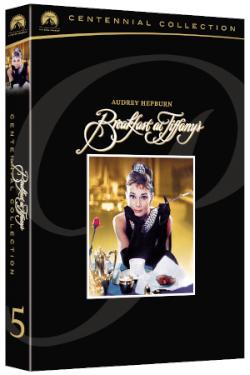Despite the beauty and iconicity of the film Breakfast at Tiffany’s, there was one thing that stuck out as being a terrible mistake, particularly to Asian Americans—the character of Mr.Yunioshi. Played by Mickey Rooney, the role called for using makeup and prosthetics to transform the White actor into a caricature of a Japanese man. This practice, called “yellowface,” was unfortunately fairly common in early cinema, but Rooney took the act to new lows by affecting a hideous accent and generally making the character an embarrassing buffoon. When producers began planning extra featurettes for the Centennial Collection’s version of the film, Eric Young of Sparkhill saw the opportunity to openly discuss the problem of Mr. Yunioshi.
“It was almost like the proverbial elephant in the room that needed commenting on,” said his brother Mark Young, who eventually produced the segment, Mr. Yunioshi: An Asian Perspective.“Breakfast at Tiffany’s is such an iconic film and it just had this mistake right in the middle of it, this character, and here we are in a more contemporary era—it just begs to be addressed and discussed.”
Young knew that he wanted to interview a panel of experts for the featurette, so he started making phone calls to academics who studied representations of Asian Americans in the media. Since it was the beginning of the school year, they were too busy to participate in the project. That’s when he turned to MANAA, the Media Action Network for Asian Americans.
“When I was able to reach Phil Lee at MANAA it was like reaching pay dirt, he was so receptive and he invited me to a meeting,” said Young. “When I first met the group at MANAA’s meeting I knew I’d have a nice lively group of individuals to interview, each with a different personality. Everyone’s background was different so we had different voices in discussing the same topic.”
From MANAA, Young found President Phil Lee, Vice President Jeffery Mio, and Founding President Guy Aoki. Since they wanted to include a female perspective as well, they suggested Marilyn Tokuda, an actress who had a long history of acting in films and was currently involved with East West Players.
In the 17-minute segment, stories of reactions to the film and the character of Mr. Yunioshi eventually opened into wider territory.Lee, Mio, Aoki and Tokuda also discuss the Japanese American internment, activism toward redress for Japanese Americans, the perils of being an Asian American actor/actress, and the impact of George Takei’s role on Star Trek for the Asian American community, among other topics.
“I know I’ll get specific answers to specific questions to build my story, but I like to leave room for personal stories or other topics or issues that are important to the person I’m interviewing,” said Young. “I found it very interesting to hear from the interviews what it’s like, what impression the movie made on them, and growing up in the environment with yellowface being part of the culture. Myself, an Anglo, not having that sensitivity but in hearing the stories, I gained a real appreciation for it.”
It may seem strange for a studio to include information on their own DVD that criticizes the film, but Young said that Paramount was open to the idea from the first proposal. They were curious to see how the segment would turn out, but he says that when they saw the final product they were happy to put it on the DVD. For his part, Young is proud to have contributed to a discussion of these important issues.
“For me personally I’ll always remember it,” he said. “It’s a standout both because of the subject matter and the people I met and interviewed for it.”

